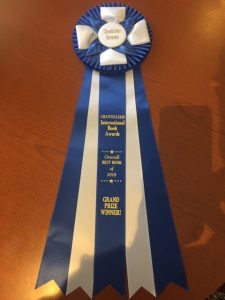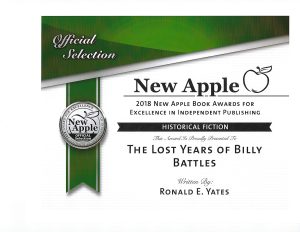Over the past few years, I have been a guest on several radio and podcast interviews discussing topics such as writing fiction and writing in general. I am posting those interviews as a three-part series for the next couple of days. I hope you find these posts interesting and, most of all, helpful.
Here is Part Two:
Do you have any advice for aspiring authors?
Don’t let anybody discourage you from pursuing this work if it is genuinely what you want to do. Don’t be intimidated by rejection. You must believe in yourself, your ideas, and your stories. If you don’t, who will? Certainly not that dense editor or literary agent who couldn’t see your potential or grasp your book’s storyline.
Is being a writer a curse or a gift?
It is a beautiful gift if you allow the process to unfold naturally and don’t force it. However, don’t let anybody tell you it is not damned hard work. It is. The joy of writing, for me, is telling a good story. I don’t care about imparting a “message.” Nor do I care about creating any hidden “meanings” that some literature professor will hold forth about in a writing class when I am no longer around to rebut him/her. I want to tell a good story. That, to me, is the ultimate goal of writing.
The curse is that writing can take over your life, isolate you from family and friends, and turn you into a kind of sophistic recluse if you are not careful. Writers need to take breaks from working. If they don’t, I believe they run the risk of becoming stale, self-absorbed, and misanthropic.
Where do you write?
I have taken over the upstairs bonus room in our house. It is about 400 square feet. I have a rather extensive library, a good sound system for playing classical music, and a large-screen TV for watching sports, as well as Discovery, History, and National Geographic channels when I need a break from writing. My window looks out onto a plant and boulder-strewn foothill that rises in front of my house. Another window looks down onto the Temecula Valley, some 2,000 feet below. It is quiet and soothing. I couldn’t have a better place to write.
Do you prefer silence or some noise while you write?
I enjoy listening to music while I write. I often listen to Mozart, Haydn, Telemann, William Boyce, and Beethoven. Classical music played softly is inspirational and helps me think more clearly. However, I also enjoy the jazz of Dave Brubeck, Oscar Peterson, The Modern Jazz Quartet, and George Shearing, among others, and I occasionally switch from classical to that genre.
What do you typically drink while writing?
Very cold iced tea.
What challenges have you had regarding your writing life?
When I was a working journalist for the Chicago Tribune and then a Dean and Professor of journalism at the University of Illinois, I could never find large enough blocks of time to write consistently. Writing requires huge amounts of time and long periods of seclusion — things most of us don’t have. Therefore, the time to write was always my greatest challenge. Now that I am no longer a college dean, teaching, or working full-time as a journalist, I am blessed to have much more time to write than I ever thought.

When did you first start, and when did you finish your book?
I started the first book in the Finding Billy Battles trilogy in 2010, but I wasn’t consistent in working on it. I buckled down in the spring of 2013 and probably wrote 60% of it in about five months. I started Book #2 in the trilogy in December 2014 and finished it in 2016. I began Book #3 in the trilogy in 2016 and finished it in 2018.
What does your protagonist think of you? Would he/she want to hang out with you?
I think Billy Battles and I would be good friends. We are journalists, and we enjoy exploring new places and taking on new challenges. Also, we both enjoy a good cold beer after a long, hard day.
How do you market your books? What avenues work best?
I am still learning how to use the vast universe of social media to market my books. In addition to Amazon and Barnes & Noble, of course, my book is on Goodreads, Smashwords, Google Books, Createspace, NetGalley, Independent Book Publishers Association, as well as the Historical Novel Society, my blog, my author page on Facebook, and the book’s website, ronaldyatesbooks.com http://www.ronaldyatesbooks.com/
What has been the harshest criticism of your book so far?
Most of the critical comments have been minor. A few people found the 19th-century Kansas vernacular my characters use in Book #1 an annoyance. Book #2 has very little of that because Billy Battles is now in Asia and Europe. A handful of people said they didn’t like the fact that the book is part of a trilogy because they had to wait for Books #2 and #3. I like THAT kind of criticism.

What has been the best compliment?
There have been several, but I will list just four here. You can find these and other reviews on the book’s Amazon page:
“This trilogy is easily the best work of fiction I have read in some time.”
“There is something about this trilogy that is almost impossible to explain, but it takes it from being a *good* story to a GREAT one.”
“Move over, Elmore Leonard and Pete Dexter–there’s a new deputy sheriff in town.”
“Ever have a series of books that take over your days and nights – that’s what the Finding Billy Battles trilogy did for me.”
Is anything in your books based on real-life experiences or purely all imagination?
That’s tricky. I call my work “Faction” because it is a blend of both fact and fiction. Some of the events in the book — especially those involving real people — did actually happen. Was my character directly involved in them? No. However, members of my family were native Kansans, and some of the experiences I wrote about did happen. Of course, I have woven some of my own experiences into the storyline, also, which I hope provides the story with an essence of realism.
How did you come up with the title?
I had been trying to think of a title for years. I didn’t like any of them. Then one day, this one just jumped out of my brain and into the computer, and Finding Billy Battles was born. That was the title of the first book. I titled Book #2, The Improbable Journeys of Billy Battles, because, in this book, Billy’s adventures take him to Asia and Europe. I called Book #3 The Lost Years of Billy Battles because, in this book, Billy disappears for several years. Why? You will have to read Book #3 to find out.
Will there be a sequel to the trilogy?
I am thinking about a couple of sequels to the trilogy. One will focus on Billy’s semi-outlaw cousin, Charley Higgins. Another will focus on Billy’s great-grandson, who writes Billy’s story and embarks on a few adventures of his own as a result of what he learns about his great-grandfather.
What project are you working on now?
I am finishing a book about foreign correspondents in Asia. The working title is: “Asia Hands: A Tale of Foreign Correspondents and Other Miscreants in the Orient.” I am also pulling together reams of notes for when I finally decide to write about my own life, covering war and mayhem as a foreign correspondent.
Please fill in the blank: Keep Calm and___________: Laugh–a lot! It’s good for the mind and body.
–30–
(TOMORROW: Part 3)
If you enjoyed this post, please consider subscribing to ForeignCorrespondent and tell your friends to subscribe. IT’S FREE! WHAT A DEAL! If you’ve received this from a friend and would like to be added to our distribution list for future blog posts, please enter your email address in the sign-up in the notifications box at:
https://ronaldyatesbooks.com/category/foreign-correspondent.
You can also find my commentaries on Substack at https://ronyates.substack.com/ and the American Free News Network at https://afnn.us.
Please feel free to comment. WE LOVE COMMENTS!

